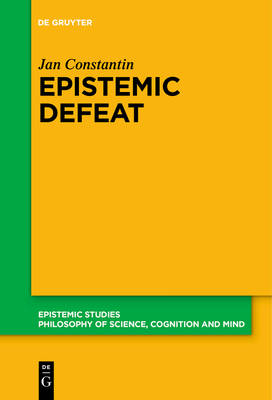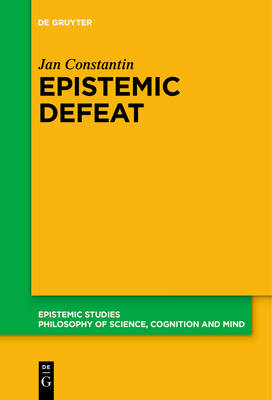
- Retrait gratuit dans votre magasin Club
- 7.000.000 titres dans notre catalogue
- Payer en toute sécurité
- Toujours un magasin près de chez vous
- Retrait gratuit dans votre magasin Club
- 7.000.0000 titres dans notre catalogue
- Payer en toute sécurité
- Toujours un magasin près de chez vous
Description
A number of well-developed theories shed light on the question, under what circumstances our beliefs enjoy epistemic justification. Yet, comparatively little is known about epistemic defeat--when new information causes the loss of epistemic justification. This book proposes and defends a detailed account of epistemic defeaters. The main kinds of defeaters are analyzed in detail and integrated into a general framework that aims to explain how beliefs lose justification. It is argued that defeaters introduce incompatibilities into a noetic system and thereby prompt a structured re-evaluation process that makes a justified reinstatement of the defeated belief impossible. The account is then applied to the topic of disagreement, where it is used in an argument for conciliationism, as well as a new explanation for higher-order defeat. Throughout the book, the notion of defeat is the center of attention, while a number of new issues are discussed at the intersections of defeat and justification. Specifically, new problems are raised for broadly internalist accounts of defeat, a fully descriptive reliabilist account of defeat is provided, and the case for normative defeat is revisited.
Spécifications
Parties prenantes
- Auteur(s) :
- Editeur:
Contenu
- Nombre de pages :
- 297
- Langue:
- Anglais
- Collection :
- Tome:
- n° 47
Caractéristiques
- EAN:
- 9783111269993
- Date de parution :
- 08-05-23
- Format:
- Livre broché
- Format numérique:
- Trade paperback (VS)
- Dimensions :
- 156 mm x 234 mm
- Poids :
- 462 g

Les avis
Nous publions uniquement les avis qui respectent les conditions requises. Consultez nos conditions pour les avis.






